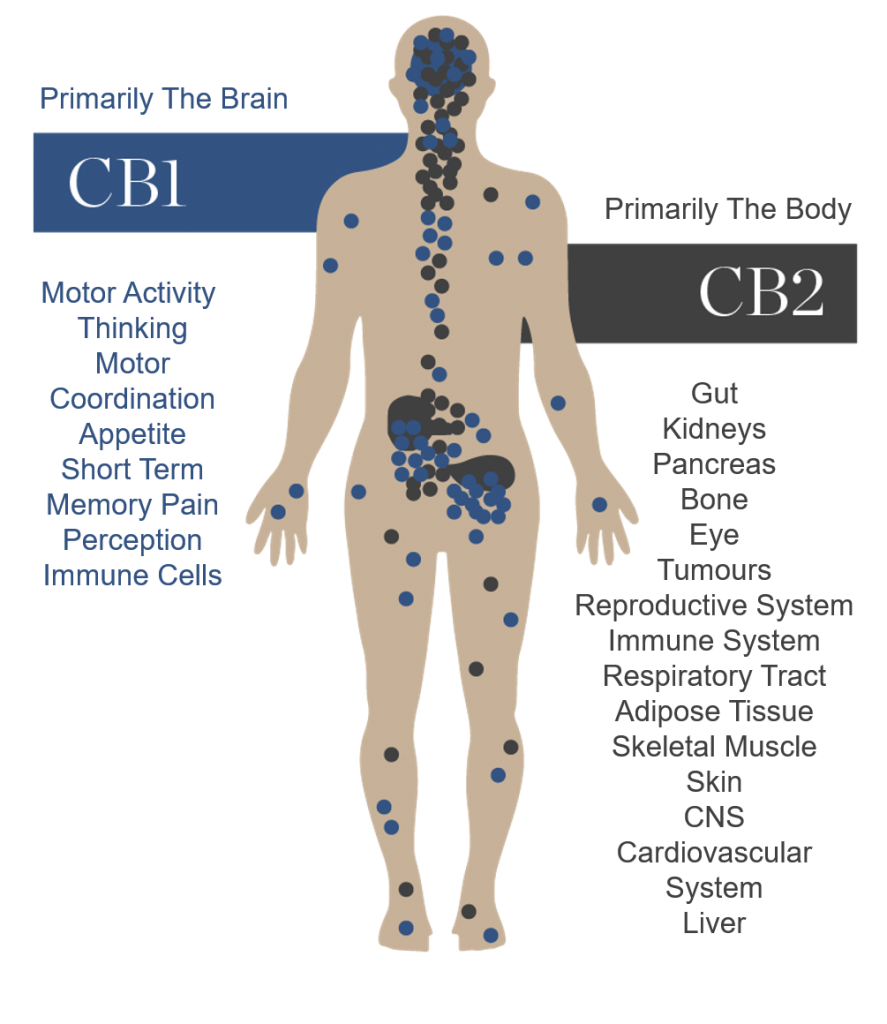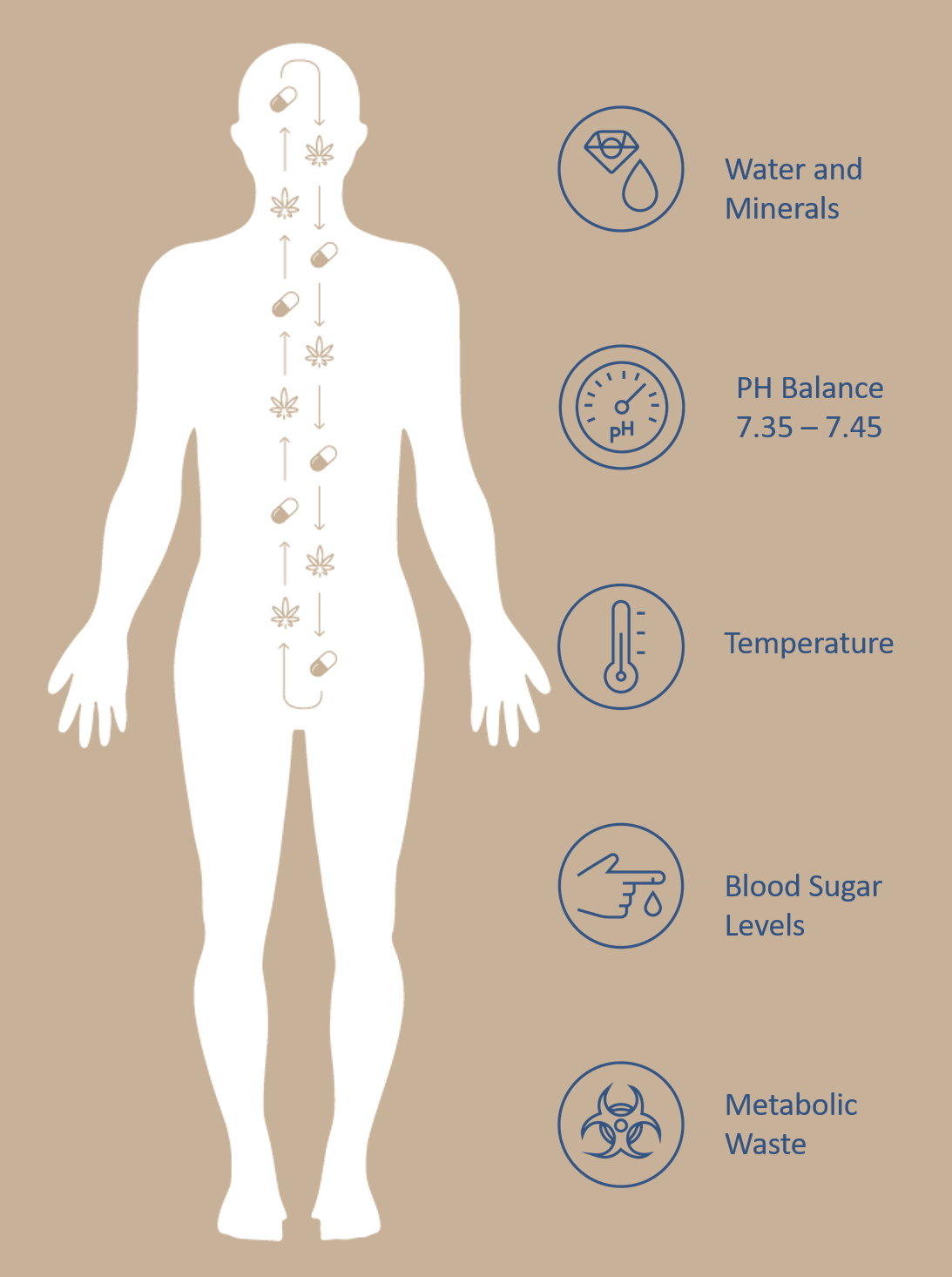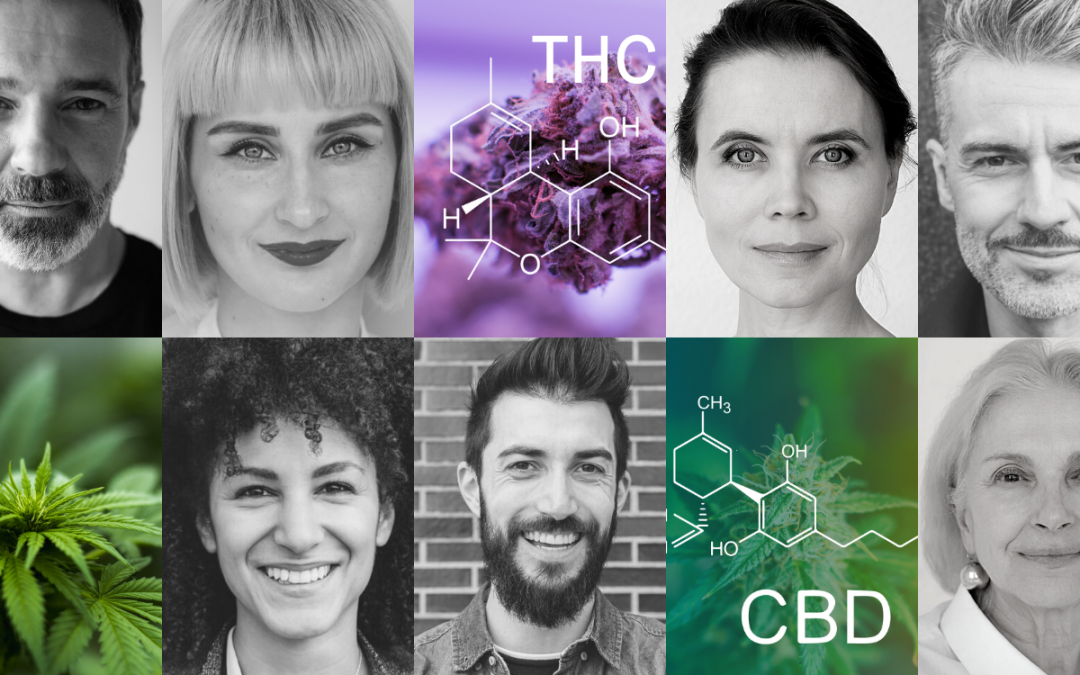How to use your DNA to get smarter about picking your CBD and cannabinoid products.
Finding the right CBD or cannabis product can feel overwhelming.
Your friends rave about a CBD product for joint pain, but when you try it, it doesn’t seem to help at all. Or maybe your family members swear by a specific cannabis strain to help with anxiety, but that same strain only makes you more anxious and irritable.
On the search for the optimal experience, you try multiple brands and products to find one that works for you. And just when you find a product you like, it loses its effect or stops working all together.
Then, you start the whole process over again, and there’s no telling how long it’ll take — or how expensive it’ll be — to find a product you not only like, but can also trust.
If this sounds familiar, you’re not alone. On average, cannabis users try about 6 different strains or varietals before they find one that addresses their health concerns. If you’re trying to address multiple health concerns — like sleeplessness and pain and anxiety — one size does not fit all.
Perhaps you’re trying and buying as many as 18 different stains to find one that works for your unique needs. That means you’re spending tons of time, energy, and money on cannabis products that aren’t providing optimal results.
So, what if there was a better way? What if science and your DNA could help you find the optimal cannabinoid formulation for your unique needs? What if you had your own cannabis and CBD matchmaker?
By decoding your DNA and mapping your endocompatibility, you can discover which strains and products match your one-of-a-kind endocannabinoid profile.
This means you can use your genetics to streamline your CBD and cannabis process and quickly find the best ratios, varietals, strains, and products for you.
What is the endocannabinoid system (ECS)?
Think of the endocannabinoid system like your own internal secret cannabis vault. We’ll help you crack the code so you never have to experiment with trial and error to find the right ratio of CBD, THC, and added terpene profiles again.
The endocannabinoid system (ECS) gets its name from two parts: “endo” which means within the body and “cannabinoid” which comes from cannabis. The ECS is named after the cannabis plant because similar molecules are found in both the body and the plant. The cannabis plant molecules, however, were discovered first.
The ECS is a network of cells that communicate to maintain your body’s organic balances, or homeostasis. Even if you don’t use cannabis, you have an ECS, and it’s constantly working to regulate important internal functions.

The ECS is vast and complex, and research is still uncovering the full extent of its influence on the body. So far, research¹ has found that the endocannabinoid system is linked to:
- Metabolism
- Pain
- Immune function
- Inflammation
- Mood
- Sleep
- Stress
- Reproductive system function
- Nerve function
Healthy maintenance of these functions is crucial to long-lasting health and wellness. And many top-notch researchers, including Dr. Ethan Russo, Chairman of Endocanna’s Health Science Board, believe that as we uncover more about the ECS, we’ll be able to better treat conditions and disorders that disrupt these important systems.
Learn more about Dr. Russo and his thoughts on plant medicine here.
Key takeaway: The ECS is a network of communication in the body that helps maintain homeostasis. Just like everyone has a unique network of neurotransmitters and receptors in their brain, everyone has a unique ECS that regulates important body functions.
How does the endocannabinoid system work?
Like most networks in the body, the ECS involves a few core components. The core components of the ECS are endocannabinoids, cannabinoid receptors, and special enzymes.²
Endocannabinoids
Endocannabinoids are molecules made by your body. They’re produced as needed, and they help regulate internal functions (like the ones mentioned above). They’re like cannabinoids found in the cannabis plant, but they’re made naturally inside the body.
Essentially, they’re special messengers that carry important information to keep your systems stable.
Cannabinoid receptors
Cannabinoid receptors do exactly what you’d expect. They’re docks for endocannabinoids. For an endocannabinoid molecule to communicate with the ECS and the body, it first binds to a cannabinoid receptor.
The two main endocannabinoid receptors are CB1 receptors (found in the central nervous system) and CB2 receptors (found in the peripheral nervous system).
This is profound because it means that endocannabinoid receptors are found throughout the body and affect countless systems and internal functions. In fact, endocannabinoid receptors are so ubiquitous, we need more research to uncover just how far-reaching the complex ECS system really is.³
Enzymes
Once an endocannabinoid molecule has docked at a receptor and communicated its message, specialized enzymes are responsible for breaking down the molecule. This frees up the receptor to communicate with other endocannabinoids as needed.
Key Takeaway: The ECS works by sending endocannabinoids to dock at cannabinoid receptors. Then, the endocannabinoid delivers messages to help regulate important body functions. Specialized enzymes eventually break down the endocannabinoids to free up the receptor for additional messengers.
Your endocompatibility is your genetic match to optimal cannabinoid and terpene profiles.
So far, we’ve determined that everyone has a unique ECS. But endocompatibility is further complicated because each cannabis strain, varietal, and product has its own unique properties, too. Strains can have wildly different cannabinoid ratios and terpene profiles from one brand to the next, or even from batch to batch.
According to the entourage effect, the compounds present in cannabis work together to create its effect. In other words, the compounds in the cannabis plant synergize differently when taken together, as opposed to taken in isolation. Therefore, each strain, varietal, and product is engineered to work differently.
Cannabinoids found in cannabis (including THC, CBD, and nearly 150 other cannabinoid compounds like CBG or THCA) interact with your unique ECS receptors by mimicking the endocannabinoids found naturally in your body.
When you take cannabis you’re introducing unique cannabinoid and terpene messengers to your genetically unique ECS.
So how can you find the perfect cannabinoid ratios and products for you?

By using your DNA and genetic information, you can map your endocompatibility. Then, you’ll have insight into which cannabinoids and terpene profiles will optimally interact with your one-of-a-kind genetic structures.
When you discover your endocompatibility and use the information to modify your cannabinoid therapy, you’ll:
- Achieve maximum therapeutic results;
- Know the optimal dosing for your body; and,
- Reduce adverse events with cannabis.
Ultimately, knowing your endocompatibility will ensure safe and effective use of cannabis or CBD.
Key Takeaway: Your genetics hold the key to decoding your ECS and finding the right cannabinoid and terpene ratios for your individual needs. Knowing your endocompatibility will empower you to use cannabinoid therapies safely and effectively.
Endo·Decoded Report and Endo·Aligned suggestions.
You can discover your unique endocompatibility by uploading your DNA and generating your Endo·Decoded Report. Then, you’ll receive Endo·Aligned suggested cannabinoid and terpene formulations for your unique genetic profile.
When you receive your Endo·Decoded Report, you’ll learn:
- The most ideal ratios, methods, and dosing of cannabinoids and CBD for your body;
- Which terpenes and cannabinoids will give you the biggest benefit;
- Which terpenes and cannabinoids you should avoid;
- Risks and benefits of using CBD and cannabinoid products for your body; and,
- What products are available in your local area that are most closely aligned with your genotype.
Curious what your Endo·Decoded Report will include? We’ve put together a sneak-peek for you. Click here to download a sample report.
Begin your personal cannabinoid journey today.
Finding the optimal therapeutic CBD or cannabis match is possible. Because cannabis is personal.
Let your DNA help you uncover your unique endocompatibility.
If you’ve already had DNA testing through a genetics company like Ancestry or 23andMe, you can get your endocompatibility results instantly. Click here to upload your existing results.
Never taken a DNA test? Not to worry! We have you covered. Order your simple and easy at-home DNA collection kit here and get started today.
Endocanna Health is a biotechnology company committed to helping consumers find the right cannabinoid products to enhance their health and wellness. Using our breakthrough DNA test, Endo·dna, we empower you to take control of your health with access to over 55 different health reports that include suggestions for the best CBD and cannabis products that match your unique genetic code. Visit us here to find out more!





